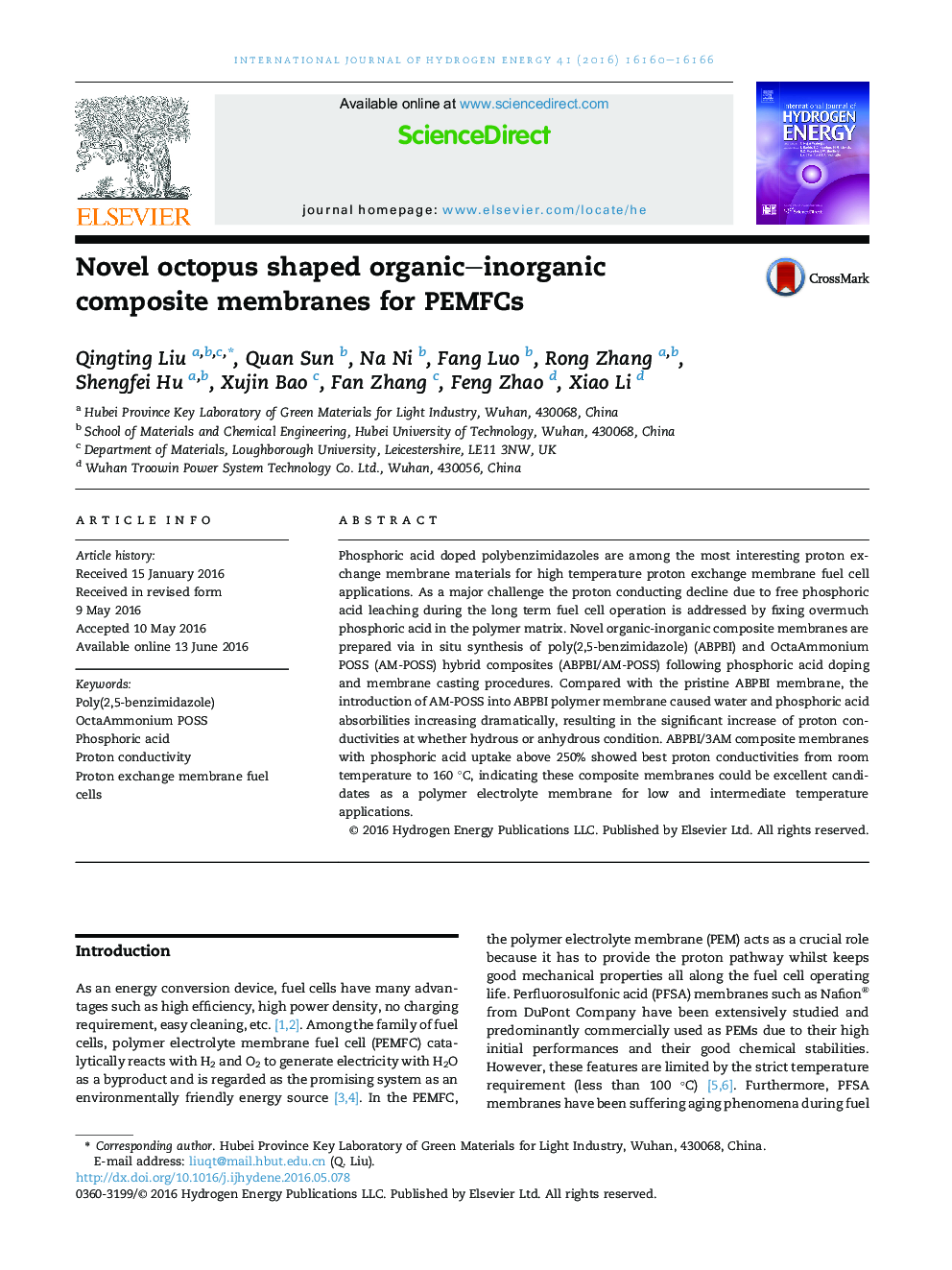| Article ID | Journal | Published Year | Pages | File Type |
|---|---|---|---|---|
| 5147888 | International Journal of Hydrogen Energy | 2016 | 7 Pages |
Abstract
Phosphoric acid doped polybenzimidazoles are among the most interesting proton exchange membrane materials for high temperature proton exchange membrane fuel cell applications. As a major challenge the proton conducting decline due to free phosphoric acid leaching during the long term fuel cell operation is addressed by fixing overmuch phosphoric acid in the polymer matrix. Novel organic-inorganic composite membranes are prepared via in situ synthesis of poly(2,5-benzimidazole) (ABPBI) and OctaAmmonium POSS (AM-POSS) hybrid composites (ABPBI/AM-POSS) following phosphoric acid doping and membrane casting procedures. Compared with the pristine ABPBI membrane, the introduction of AM-POSS into ABPBI polymer membrane caused water and phosphoric acid absorbilities increasing dramatically, resulting in the significant increase of proton conductivities at whether hydrous or anhydrous condition. ABPBI/3AM composite membranes with phosphoric acid uptake above 250% showed best proton conductivities from room temperature to 160 °C, indicating these composite membranes could be excellent candidates as a polymer electrolyte membrane for low and intermediate temperature applications.
Keywords
Related Topics
Physical Sciences and Engineering
Chemistry
Electrochemistry
Authors
Qingting Liu, Quan Sun, Na Ni, Fang Luo, Rong Zhang, Shengfei Hu, Xujin Bao, Fan Zhang, Feng Zhao, Xiao Li,
